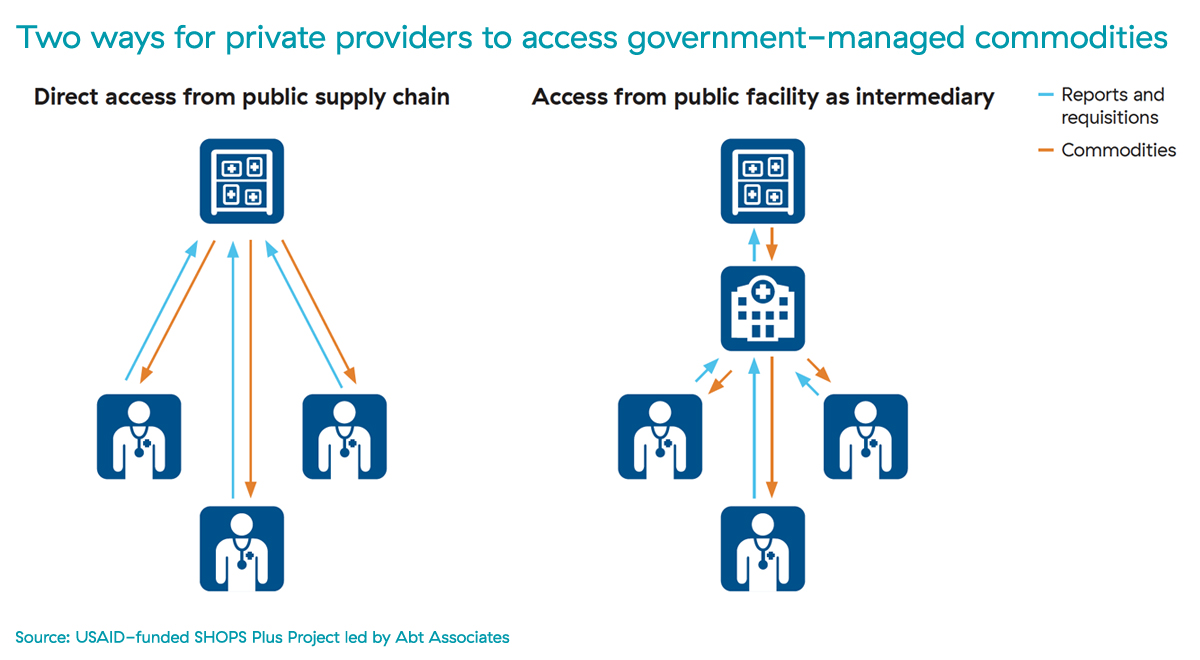Public-Private Partnerships for Family Planning Commodities
Many governments and donors support the use of public-private partnerships to distribute publicly managed commodities through the private health sector to overcome barriers to access for the full range of family planning methods. This brief draws on country experiences with commodity partnerships for family planning in Kenya, Nigeria, and Tanzania. It documents approaches used to place government-managed commodities into the hands of private providers and ultimately the women seeking the method. It examines factors that motivated public and private actors to pursue partnerships to enable private sector provision of long-acting reversible contraceptives, and how well the implementation of the partnerships aligned with those motivations. The brief discusses the challenges and lessons learned from this experience, and concludes with reflections about when and how donors and governments might decide to replicate, improve, or scale up these partnerships.
Click the infographic to view and save the image
SHOPS Plus
